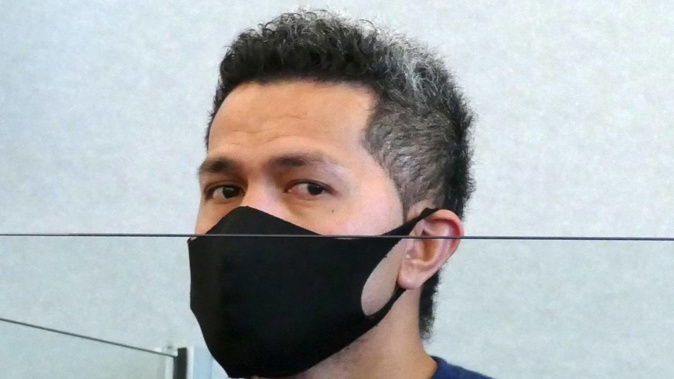
A man who surreptitiously filmed a woman in a public toilet will likely be deported after being convicted, a court has heard.
Kanava Galuega, a 32-year-old CCTV camera technician, appeared in the Dunedin District Court yesterday after admitting a charge of making an intimate visual recording.
Counsel Andrew Dawson argued his client should be discharged without conviction because the stain on his criminal record would almost certainly result in him being deported to Tuvalu, ending his family's dreams of citizenship in New Zealand.
But Judge Dominic Flatley said it was not for the court to usurp the function of Immigration New Zealand.
Galuega was at The Warehouse on May 15 when he walked into the women's toilets.
When a woman entered the cubicle next to him, he activated the filming function on his cellphone and slipped it under the partition.
The victim immediately saw the device with her image on screen being recorded and swiftly left the toilet.
She alerted store security who spoke to Galuega when he emerged, the court heard.
When police interviewed the defendant later, he passed off his actions as an innocent accident.
Galuega claimed he had "urgently" needed to use the bathroom and was unaware it was for women until he heard a voice.
The man explained to police that he "panicked".
"He used his camera phone on record to film the female next to him to see if it was the female toilets or not," court documents stated.
However, Galuega had since come clean and put his actions down to an out-of-control pornography addiction.
Dawson said the man was now engaged in counselling for the issue and was willing to make a payment to the victim for the emotional harm caused.
The woman had suffered "ongoing anxiety" over the incident, the court heard, but was not strongly opposed to the discharge without conviction.
The police, however, were.
Judge Flatley said Galuega's actions appeared pre-planned rather than opportunistic and he said there was significant public interest in denouncing such offending.
It was rare for the risk of deportation alone to lead to a discharge without conviction, he said.
Galuega was sentenced to 200 hours' community work and 12 months supervision.
The judge acknowledged that publication of the defendant's name was likely to have an adverse impact on his wife and children but he declined an application for final name suppression.
Take your Radio, Podcasts and Music with you








